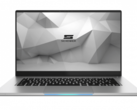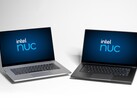Intel made waves earlier this week with its claims about AMD's most-recent Ryzen APUs. The chipmaker briefed journalists that it had discovered heavy throttling behaviour with AMD Ryzen 4000 APUs when running on battery power. Many outlets covered it, and some even went as far as refusing to analyse it - for some reason. Intel's claims are worthy of analysis though, as they seek to challenge how reviewers assess laptops.
Essentially, Intel claims that the current methodology of testing laptops on AC, and battery power in our case, does not 'represent the experiences of end consumers'. According to Intel, 'notebook testing should be done in an unplugged state', because:
Consumers are using their laptops unplugged within their home primarily for office productivity, browsing the web and consuming & creating content.
Intel cites an internal study to prove this claim, and adds that '70% of recent laptop buyers use their computer in multiple locations throughout the home'. Apparently, Intel conducted a survey in China, Germany and the US, of which it received 1,315 responses. It also collected data from 1,584,225 laptops 'regarding application usage', although it has offered no further details on this.
So, rather than extolling the virtues of how its Tiger Lake processors work just as well on battery power as they do when connected to a charger, Intel chose to drag AMD down instead. According to the report:
AMD system drop performance by up to 48% [emphasis added by Intel] in representative benchmarks and real world usage when running on battery.
There are some flaws in Intel's methodology that are worth clarifying, though. On the one hand, Intel did not acknowledge that AMD allows OEMs to control the performance of its APUs when running on battery power. This means that Intel's choice of five Ryzen-based laptops will not represent the performance on battery power of every Ryzen 4000 machine. At best, Intel has critiqued four Lenovo laptops and an HP Envy x360 15.
In our Lenovo ThinkPad T14 review, for instance, we noticed no loss of CPU performance on battery power. The same applied to the machine's Radeon RX Vega 6 GPU. The similarly-equipped IdeaPad S540 did exhibit some loss of performance when running on battery power though, with drops of up to 7% in Cinebench, for example. Hence, performance on battery power appears to differ between laptops of the same OEM, as it has done in the past with AMD and Intel machines.
Extreme Tech has found that Intel's claims do not stack up in many benchmarks like Cinebench R23 too, or Blender, Handbrake or JetStream. Intel also chose to omit benchmarks like Cinebench R20 from its findings because they did not match with what it had seen in PCMark. Instead, Intel dismissed the benchmark as odd and insisted that we should only pay attention to its approved benchmarks that agree with its findings.
Wccftech has published the full presentation should you wish to read through it. Overall, we do not think that Intel has proven its assertions, nor should these go unchallenged. Focusing on the perceived shortcomings of AMD Ryzen 4000 APUs with a limited sample size is an odd way for Intel to go about telling us how great Tiger Lake is. Perhaps, Intel would have been better served emphasising the benefits of its Tiger Lake platform, instead.





















